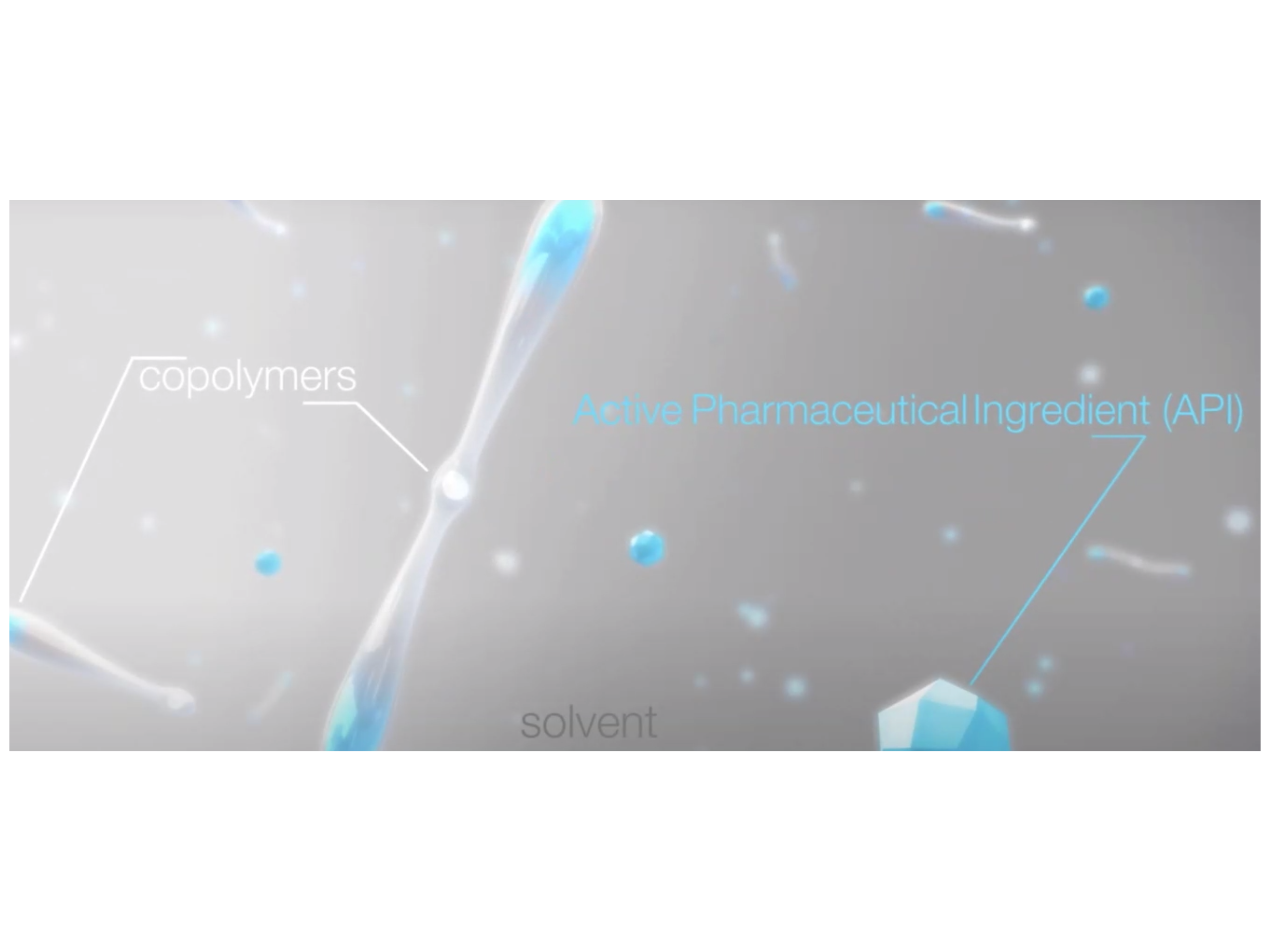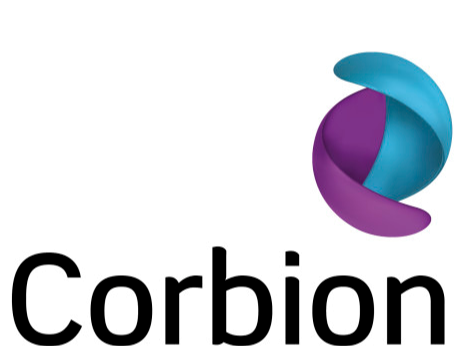Type of technology
In-situ forming gel/implant
Administration route
Subcutaneous, Intra-articular
Development state and regulatory approval
Risperidone
Marketed
FDA approved (UZEDY)
Description
BEPO® is a simple yet flexible technology based on MedinCell®'s custom proprietary copolymers, which forms a fully bioresorbable depot once injected. BEPO® technology has the potential to control regular delivery of an API at an optimal therapeutic dose for several days, weeks or months. BEPO® can be administered subcutaneously for systemic exposure of APIs or locally for targeted treatments.
Developer(s)

MEDINCELL
MedinCell® is a pharmaceutical company at premarketing stage that develops innovative long-acting injectable medicines in many therapeutic areas. Products of our portfolio are based on our BEPO® technology and aim to ensure patient compliance, improve the effectiveness and accessibility of treatments, and reduce their environmental footprint.
Technology highlight
From systemic to local delivery, BEPO® is a clinically advanced proprietary long acting injectable technology that enables the controlled delivery of various active ingredients, to address a broad range of therapeutic needs. BEPO® technology makes possible to control and guarantee the regular delivery of a drug at the optimal therapeutic dose for several days, weeks or months. At the time of the injection, the BEPO technology forms a deposit of polymers of a few millimeters under the skin for a systemic action, or locally for a targeted action. The deposit diffuses the active ingredient by resorbing for the desired duration, like a mini pump that would be injectable and bioresorbable.
Illustration(s)
Technology main components
Three core components: a- A combination of diblock (DB) and triblock (TB) copolymers containing hydrophilic and water-soluble blocks (polyethylene glycol – PEG) linked with hydrophobic and amorphous blocks (Poly(D,L-lactic acid) – PLA) which precipitate in forming a depot when exposed to an aqueous environment. They are functional excipients, ensuring the controlled drug release. b- A pharmaceutically acceptable organic solvent, e.g. DMSO, to dissolve the copolymers and make the entire system injectable. c- An API to ensure pharmacological activity. The API can be a small molecule, a peptide or a therapeutic protein. The API is entrapped within the polymer matrix and is released thereafter by diffusion and following polymer degradation.
The core functional copolymer excipients are exclusively manufactured and supplied through a joint Venture made between Medincell and Corbion, called CMB. Corbion manufactures the copolymers with the appropriate quality standards and scale to ensure sufficient availability.
Delivery device(s)
No delivery device
APIs compatibility profile
Small molecules are best suited for formulating. Compatibility needs to be determined on a case-by-case basis.
Case by case basis. Complex biomacromolecules like therapeutic proteins have inherent challenges that need to be tackled specifically during formulation development
Not provided
Not provided
0.1-60%
1 single API :
Min: -2.5 Max: 6.1
Scale-up and manufacturing prospects
Not provided
Not provided
Not provided
Not provided
Excipients
No proprietary excipient used
Confidential information
No residual solvent used
Additional features
- Biodegradable
- Room temperature storage
- At least 1 year shelf life
- Drug-eluting
- Non-removable
- Single-use
BEPO® technology has the potential to control regular delivery of an API at an optimal therapeutic dose for several days, weeks or months. The technology can provide a sustained release profile of an API with low initial burst. The hygroscopy and consequently the API release kinetics from the depots can be fine-tuned by adjusting the hydrophilicity of the DB and TB and their relative ratio.
BEPO® drug products are liquid and can be injected using standard injection device with standard 21 gauge needle or even thinner depending on the formulation characteristics.
We currently have 3 clinically advanced drug products based on BEPO® technology, including one at NDA stage with TEVA pharmaceuticals. The RISE clinical phase III study completed in November 2020 did not raise any safety signals that were inconsistent with the known safety profile of other risperidone formulations.
Our technology may allow long-term storage at room temperature with shelf life well above 1 year.
Room Temperature storage possible. Cold chain is not mandatory, except in instances where the drug substance requires refrigeration for long term storage.
Therapeutic area(s)
- Malaria
- Contraception
- Disease agnostic
- COVID 19
- Pain management
- Mental health
- TB
- Treatment
- Prevention
Potential associated API(s)
- Risperidone
- Celecoxib
- Ivermectin
- Progestin
- Olanzapine
- Macozinone
- Progestin
Use of technology
- To be determined
- Administered by a nurse
- Administered by a specialty health worker
Depending on product, once weekly up to once annually, Weekly, Monthly, Every 6 months, Yearly, Every 2 months
Not provided
Targeted user groups
- Adults
- Older Adults
- All
- Male
- Female
- Cisgender female
- Cisgender male
- Transgender female
- Transgender male
- Intersex
- Gender non-binary
Unspecified
Unspecified
Unspecified
Not provided
antipsychotic
Marketed
Not provided
Schizophrenia
UZEDY (risperidone) extended-release injectable suspension is a prescription medicine used to treat schizophrenia in adults.
1 or 2 months
FDA approved (UZEDY)
Celecoxib
anti inflammatory
Phase III
NCT05603832
post-operative pain and inflammation
Not provided
Once every 12 weeks
Not provided
Not provided
Pre-clinical
Not provided
Malaria Transmission prevention
persons at risk of malaria and their communities
Single intervention per year (3 months action duration)
Not provided
Progestin
Not provided
Pre-clinical
Not provided
contraception
persons desiring contraception use
6 months
Not provided
Olanzapine
Not provided
Phase III
NCT05693935
schizophrenia management
Adults with schizophrenia
1 month
Not yet approved
Macozinone
antimycobacterial
Pre-clinical
Not provided
Not provided
Not provided
Not provided
Not provided
Progestin
contraceptive
Pre-clinical
Not provided
Not provided
Not provided
6 months
Not provided
Publications
Christophe Roberge, Jean-Manuel Cros, Juliette Serindoux, Marie-Emérentienne Cagnon, Rémi Samuel, Tjasa Vrlinic, Pierre Berto, Anthony Rech, Joël Richard, Adolfo Lopez-Noriega
This article presents BEPO®, an in situ forming depot (ISFD) technology mediated by a solvent-exchange mechanism. The matrix of the in situformed drug delivery depot is composed of the combination of a diblock (DB) and a triblock (TB) polyethylene glycol-polyester copolymer. This combination offers a broad capability to tune the release of a wide variety of drugs to the desired pharmacokinetics. The work described in the present article demonstrates that the delivery rate and profile can be adjusted by changing the composition of either TB or DB or the relative ratio between them, among other parameters. It has been shown that the polymeric composition of the formulation has a substantial impact on the solvent exchange rate between the organic solvent and the surrounding aqueous medium which subsequently determines the internal structure of the resulting depot and the delivery of the therapeutic cargo. This has been demonstrated studying the in vitro release of two model molecules: bupivacaine and ivermectin.
Formulations releasing these drugs have been administered to animal models to show the possibility of delivering therapeutics from weeks to months by using BEPO® technology.
In Vitro and In Vivo Hydrolytic Degradation Behaviors of a Drug-Delivery System Based on the Blend of PEG and PLA Copolymers , Feifei Ng, Victor Nicoulin, Charlotte Peloso, Silvio Curia, Joël Richard, and Adolfo Lopez-Noriega , ACS Applied Materials & Interfaces 2023 15 (48), 55495-55509 , DOI: 10.1021/acsami.2c13141
This paper presents the in vitro and in vivo degradation of BEPO, a marketed in situ forming depot technology used for the formulation of long-acting injectables. BEPO is composed of a solution of a blend of poly(ethylene glycol)-block-poly(lactic acid) (PEG–PLA) triblock and diblock in an organic solvent, where a therapeutic agent may be dissolved or suspended. Upon contact with an aqueous environment, the solvent diffuses and the polymers precipitate, entrapping the drug and forming a reservoir. Two representative BEPO compositions were subjected to a 3-month degradation study in vitro by immersion in phosphate-buffered saline at 37 °C and in vivo after subcutaneous injection in minipig. The material erosion rate, as a surrogate of the bioresorption, determined via the depot weight loss, changed substantially, depending on the composition and content of polymers within the test item. The swelling properties and internal morphology of depots were shown to be highly dependent on the solvent exchange rate during the precipitation step. Thermal analyses displayed an increase of the depot glass transition temperature over the degradation process, with no crystallinity observed at any stage. The chemical composition of degraded depots was determined by 1H NMR and gel permeation chromatography and demonstrated an enrichment in homopolymers, i.e., free PLA and (m)PEG, to the detriment of (m)PEG–PLA copolymers in both formulations. It was observed that the relative ratio of the degradants within the depot is driven by the initial polymer composition. Interestingly, in vitro and in vivo results showed very good qualitative consistency. Taken together, the outcomes from this study demonstrate that the different hydrolytic degradation behaviors of the BEPO compositions can be tuned by adjusting the polymer composition of the formulation.
Evaluating the in vivo stability of water-soluble PEG-PLA copolymers using FRET imaging,Reactive and Functional Polymers, Sophie Bou, Feifei Ng, Elise Guegain, Charlotte Peloso, Adolfo Lopez-Noriega, Mayeul Collot,Volume 187,2023,105579,ISSN 1381-5148, https://doi.org/10.1016/j.reactfunctpolym.2023.105579.
Biodegradable and biocompatible polymer materials with tunable physical properties present a great interest for controlled drug delivery applications. A good example is BEPO®, a clinical-stage in situ-forming depot technology based on the utilization of a blend of poly(ethylene glycol)-b-poly(D,L-lactic acid) (PEG-PLA) diblock and triblock amphiphilic copolymers dissolved in an organic solvent. Once injected, this technology will form a bioresorbable solid polymer depot that will allow the release of a drug from weeks to months. The safety of the final degradation products from this technology, i.e., PEG and lactic acid, is well-documented. However, little information exists about the fate of intermediate degradants, specifically of water-soluble PEG-PLA chains where the molecular weights of the PLA block are short. Herein, we designed a Förster Resonance Energy Transfer (FRET) system for short copolymers, suitable for longitudinal in vivo imaging in the subcutaneous space, allowing to follow the stability of these products. Our results confirm that these species, that might be leaked from BEPO® depots during degradation, are rapidly hydrolyzed in the subcutaneous space of mice, forming approved products by Health Authorities, i.e., PEG and PLA homopolymers and/or lactic acid.
Additional documents
Collaborate for development
Consider on a case by case basis, collaborating on developing long acting products with potential significant public health impact, especially for low- and middle-income countries (LMICs), utilising the referred to long-acting technology
Share technical information for match-making assessment
Provide necessary technical information to a potential partner, under confidentiality agreement, to enable preliminary assessment of whether specific medicines of public health importance in LMICs might be compatible with the referred to long-acting technology to achieve a public health benefit
Work with MPP to expand access in LMICs
In the event that a product using the referred to long-acting technology is successfully developed, the technology IP holder(s) will work with the Medicines Patent Pool towards putting in place the most appropriate strategy for timely and affordable access in low and middle-income countries, including through licensing
All sponsors
No sponsor indicated
Comment & Information
More information available at : https://www.medincell.com/en/






